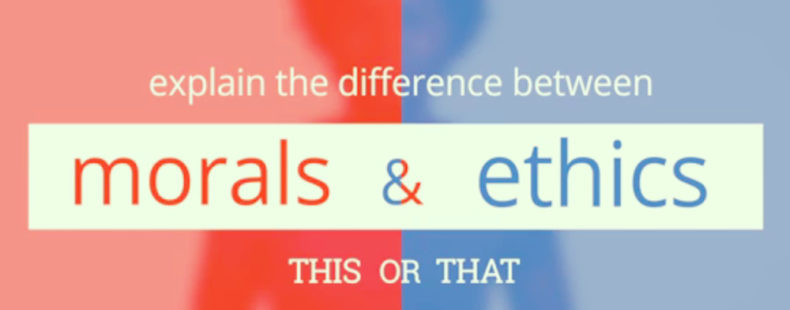Maybe you’ve heard the terms ethics and morals and wondered what the difference is. Is a moral precept the same as an ethical code? A lot of people think of them as being the same thing.
While they’re closely related concepts, morals refer mainly to guiding principles, and ethics refer to specific rules and actions, or behaviors.
In this article, we’ll explain the subtle differences between morals and ethics, how they overlap, and whether something can be moral but not ethical, and vice versa.
What is the difference between morals and ethics?
A person’s idea of morals tends to be shaped by their surrounding environment (and sometimes their belief system). Moral values shape a person’s ideas about right and wrong.
They often provide the guiding ideas behind ethical systems. That’s where it gets tricky … morals are the basis for ethics.
A moral person wants to do the right thing, and a moral impulse usually means best intentions.
Ethics are distinct from morals in that they’re much more practical.
A moral precept is an idea or opinion that’s driven by a desire to be good. An ethical code is a set of rules that defines allowable actions or correct behavior.
An ethical code doesn’t have to be moral. It’s just a set of rules for people to follow. Several professional organizations (like the American Bar Association and the American Medical Association) have created specific ethical codes for their respective fields.
In other words, an ethical code has nothing to do with cosmic righteousness or a set of beliefs. It’s a set of rules that are drafted by trade groups to ensure members stay out of trouble and act in a way that brings credit to the profession.
Moral vs. ethical actions
It’s important to know that what’s ethical isn’t always what’s moral, and vice versa. Omerta, for example, is a code of silence that developed among members of the Mafia. It was used to protect criminals from the police. This follows the rules of ethically-correct behavior for the organization, but it can also be viewed as wrong from a moral standpoint.
A moral action can also be unethical. A lawyer who tells the court that his client is guilty may be acting out of a moral desire to see justice done, but this is deeply unethical because it violates the attorney-client privilege.














